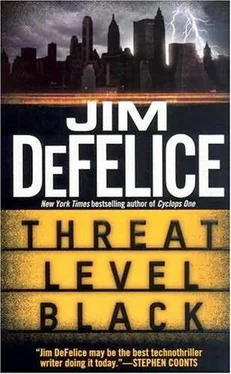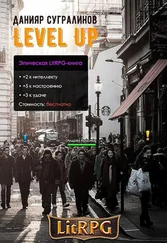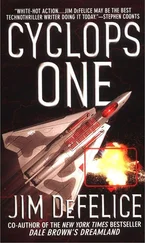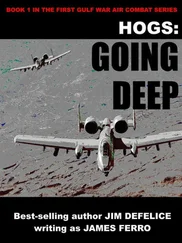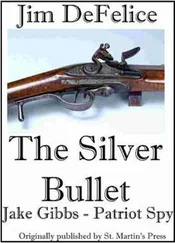Blitz wanted more than regime change in North Korea. American interests in Asia ultimately depended on reunification. Not only was this the only way to effectively prevent war, it was the best short-term solution to growing Japanese restlessness about its constitutionally limited military establishment. Unlike some of his predecessors, Blitz realized that a rapidly rearming Japan presented a grave danger in Asia. China would have to react, and inevitably this would lead to further confrontation.
Blitz knew his goal; the difficulty was that it looked impossible to achieve, short of war. War in Korea would inevitably kill hundreds of thousands of civilians, even if the nuclear warheads the country was believed to have were not used.
While many worried about the nuclear weapons, ironically they were relatively easy to neutralize or at least target. Central Intelligence had confirmed that North Korea had two warheads loaded on Taepo-Dong 1 missiles that could hit Japan but that the CIA had concluded were currently aimed at South Korean targets. For the past eighteen months the country had been reprocessing uranium, or at least claiming that it was, turning it into bomb material. There was considerable debate about how much weapons-grade material the North Koreans had made, but the consensus was that the country probably had enough for four or six more weapons. Among the many reports on Blitz’s desk was one updating the likelihood that these had been placed on the Taepo-Dong 2 two-stage missile, a long-range weapon theoretically capable of striking Alaska. The missile wasn’t very accurate, but as the head of the Air Force pointed out, you didn’t have to be very accurate with a nuclear warhead.
All of the missile sites, along with potential bomb storage areas and a number of “hot spots” where sensor readings indicated uranium was present in some form, were under constant surveillance and could be destroyed within roughly twenty minutes-less time than it would take the Koreans to prepare the missiles for launch. If the North Koreans tried to go nuclear, Blitz was fairly confident that the threat could be met.
More problematic, though, were the massive number of rocket and artillery weapons aimed at South Korea. Two hundred and fifty 240mm rocket launchers were deployed by one unit alone, all aimed at Seoul from just north of the demilitarized zone. The total number of guns and rockets capable of killing people in the heavily populated area near South Korea ’s capital literally could not be counted but numbered well in the thousands. Many of these weapons could be reloaded and used several times within just a few minutes.
Those weapons, too, were targeted. Most would be wiped out quickly if the order to attack was given, but presumably by then the damage would be done.
The Koreans may have seen the weapons as a deterrent to American attack. In some ways, however, they were exactly the opposite: It made more sense to launch a preemptive strike if things looked dicey than to stand around waiting until Seoul was on fire. Logically, Blitz realized that this meant America should attack before the North Koreans had a chance to. But successfully navigating the postwar environment required “moral authority,” which presumably would be lost if the U.S. struck first. Whether it made sense to or not.
“President’s looking for you,” said Mozelle, appearing over his desk between calls.
Blitz glanced at his watch. “I’m supposed to head up to NADT and have lunch with Bill Howe. What’s up?”
Mozelle gave her eyes a little half-roll, which meant she had no idea. “FBI director just came over, along with Jack Hunter.”
“Hunter? What the hell does he want?”
“President didn’t say.”
Blitz grunted. He left his assistant to deal with the phones and went down the hall to the President’s office, where he found President D’Amici lining up a putt on the carpet. Charles Weber, the head of the FBI, sat at the side of the President’s desk. Hunter, who was presently the third or fourth man in the agency, depending on how you interpreted the depth chart, sat beside him. Both men were dressed in identical brown suits; the cuffs of their pants were hiked just enough to reveal a line of skin above their argyle socks.
The President flicked his wrist and sent a ball shooting across the carpet into the plastic cup. A little flag shot up at the side and the ball spun back.
“Dr. Blitz-just the man I wanted to see,” said the President, as if Blitz had wandered into the office by accident. He pointed his golf club at Weber. “Charlie, give the professor the lowdown.”
“Actually, Jack’s got a better handle on it.”
“Three days ago,” began Hunter in a voice that sounded as if it came from a TV commercial, “one of our field agents received a call from a young woman in Arizona…”
Hunter continued, detailing a contact from a scientist in North Korea who wanted to defect. The situation would not have been particularly unique, except for the fact that the scientist had supplied a copy of plans for an E-bomb, a weapon North Korea was not known to possess. That, and the fact that the DIA had recently begun working on a case involving the potential threat of using such a device on a major East Coast city.
Blitz hunched down in his seat and scratched his goatee. “Are these two things related?” he asked.
“We’re not sure,” said Hunter. “We’re still trying to flesh things out. The Korean is going to Moscow in two days. We want to try to contact him there.”
Different experts had slightly different opinions on the potency of the weapon: One thought it would send a surge through all unprotected electrical devices within a five-mile radius, frying them for good. Another thought its potency would be limited to roughly a mile or so. The three other experts who’d been consulted were somewhere in between. All agreed that the explosion would almost certainly cause the Northeast’s power grid to go down for several days, probably more.
“Best-case scenario, this is a real catastrophe,” said Hunter. “Nothing like the August 2003 blackout. The surges in the system will wipe out at least some of the safeguards that have been put in place since then. Worst case I don’t even want to speculate about.”
Hunter had his own ax to grind here, Blitz realized; he was angling for the FBI director’s job, which was due to open at the end of the year with his boss’s planned retirement. Blitz didn’t mind ambition, though it could be a powerful set of blinders when information was being conveyed.
“What does CIA think?” Blitz asked.
“I spoke to Anthony late yesterday,” said Hunter, referring to the head of the CIA. “He thinks it’s valid. We’ve sent one of our best people out to nose around, back up the field agent, Andy Fisher.”
Blitz knew of Fisher from the NADT scandal. Though unorthodox, the agent was reliable.
“We’d like to grab this guy and bring him back,” said Hunter.
Blitz stroked his chin. A Korean plot against the United States: That would clearly justify intervention, maybe even a preemptive strike.
Have the President go on television-no, have the scientist go on television.
Wouldn’t work.
“We want to help this guy defect,” repeated Hunter.
“What do you think, Professor?” asked the President. “Is it worth it?”
“Information on their weapons would certainly be useful,” said Blitz. “But what about the DIA’s angle? How would they get it here?”
“We don’t know,” said Hunter. “To be candid, from what we’ve seen, it’s just pure speculation by the DIA and it’s unrelated to this. But of course we should take it seriously.”
“That’s why I thought it best to bring it to the President’s attention personally,” said Weber.
Читать дальше
